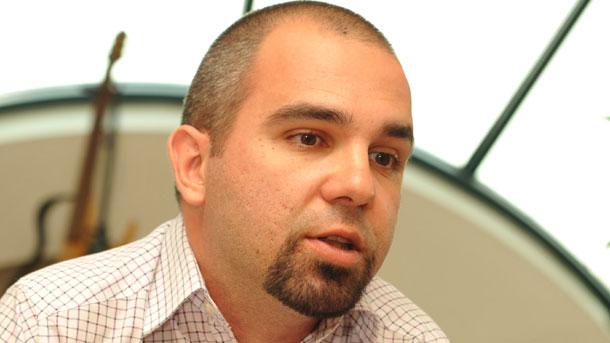More and more prospects have been opening up before women in Bulgaria in the domain of politics. Public opinion holds that the age threshold with women is lower compared to men. Marriage as a formal institution is called into question, though children are still considered to be an asset. Bulgarians put the personal monthly income that would provide comfortable living at BGN 1,351. These are some of the conclusions from a special Gallup International Balkan survey commissioned by Zhenata Dnes (Woman Today) magazine on the occasion of the magazine’s 70th anniversary.
The sociologists have probed into public sentiments regarding women in the public domain. Some of the most successful Bulgarian politicians of today are women – Vice-President of the European Commission, President of the National Assembly, Vice-President of Bulgaria, Deputy Prime Ministers, cabinet ministers, mayors etc. The pollsters tested the three most intriguing hypotheses, connected with women in politics – UNESCO Director-General Irina Bokova, Deputy Prime Minister and Minister of the Interior Rumyana Bachvarova and Sofia Mayor Yordanka Fandukova:
 “Irina Bokova stands a very real chance of becoming UN Secretary-General,” says Purvan Simeonov, Director of Gallup International, Bulgaria. “But she first has to be officially nominated by Bulgaria. Her name has already been put forward by PM Borissov and 69 percent of Bulgarians believe she is the Bulgarian nomination, i.e. they believe the Prime Minister even though he changes his mind so often. Sixty-four percent of the respondents say it would be a good thing if Irina Bokova were to become UN Secretary-General, with only one fifth upholding the opposite view. The hypothesis of Sofia Mayor Yordanka Fandukova becoming Prime Minister is described as probable by 43 percent; 53 percent uphold the opposite view. Yet, 57 percent say this would be a good thing for Bulgaria, 36 percent say it would not.
“Irina Bokova stands a very real chance of becoming UN Secretary-General,” says Purvan Simeonov, Director of Gallup International, Bulgaria. “But she first has to be officially nominated by Bulgaria. Her name has already been put forward by PM Borissov and 69 percent of Bulgarians believe she is the Bulgarian nomination, i.e. they believe the Prime Minister even though he changes his mind so often. Sixty-four percent of the respondents say it would be a good thing if Irina Bokova were to become UN Secretary-General, with only one fifth upholding the opposite view. The hypothesis of Sofia Mayor Yordanka Fandukova becoming Prime Minister is described as probable by 43 percent; 53 percent uphold the opposite view. Yet, 57 percent say this would be a good thing for Bulgaria, 36 percent say it would not.
Thirteen percent of the respondents uphold the opinion that Rumyana Bachvarova may well become President of Bulgaria, with the majority stating they cannot imagine her as president; 64 percent state that would not be a good thing for the country. The public accept her in the post she currently occupies - she is among the cabinet ministers with the highest approval ratings, though Bulgarians are finding it difficult to imagine a woman as president of the country.”
Purvan Simeonov presents some intriguing results connected with the role of women in society – how the public view the family, incomes and other factors pertaining to quality of life. For example, according to Bulgarians, a woman can be said to be young up to the age of 39, for men this threshold is 42. The older the respondents, the higher the threshold of youth. The public put the personal monthly income that would provide comfortable living at BGN 1,351. As expected, the higher the real income, the higher the desired level of income – people with a monthly income of over BGN 1,000 state they want it to go beyond BGN 1,500, whereas respondents whose monthly income is below BGN 250 hardly ever mention such a sum.”
Purvan Simeonov also comments the reactions to the claim: “A family out of wedlock with one or more children is something normal in our day.”
“Eighty percent of the respondents agree with this and 15 percent uphold the opposite view which means that this model of cohabitation enjoys a high degree of popularity and approval. As could have been expected, with respondents from the higher age bracket the number of positive answers drops, but even in that age group they predominate over the negative answers. Bulgarians have a liberal view of marriage but the value attached to having a child is practically absolute. Eighty-six percent agree with the maxim “Life is not worth living if one doesn’t have children”, with only 7 percent upholding the opposite view.”
English version: Milena DaynovaThe town of Elena, Veliko Tarnovo region, will welcome thousands of guests for the Feast of the Elena pork leg meat delicacy . Balkan masters will demonstrate their culinary art on Saturday and Sunday, BNR correspondent Zdravka Maslyankova reported...
The international wine festival "Bolgrad Wine Fest" is opening today in the unofficial capital of ethnic Bulgarians in Ukraine - Bolgrad. The two-day event will be held at the Center for Culture and Recreation. For the first time, within the..
The 33rd Bulgarian polar expedition is heading to Antarctica to continue its scientific research in cooperation with scientists from different countries. For the first time, travelers from two Balkan countries - Greece and Montenegro, as well as from..
Who said Bulgarians were grumpy pessimists? Take a stroll through Sofia's Christmas bazaars and meet the cheerful crowd. The festive decorations, music,..

+359 2 9336 661
